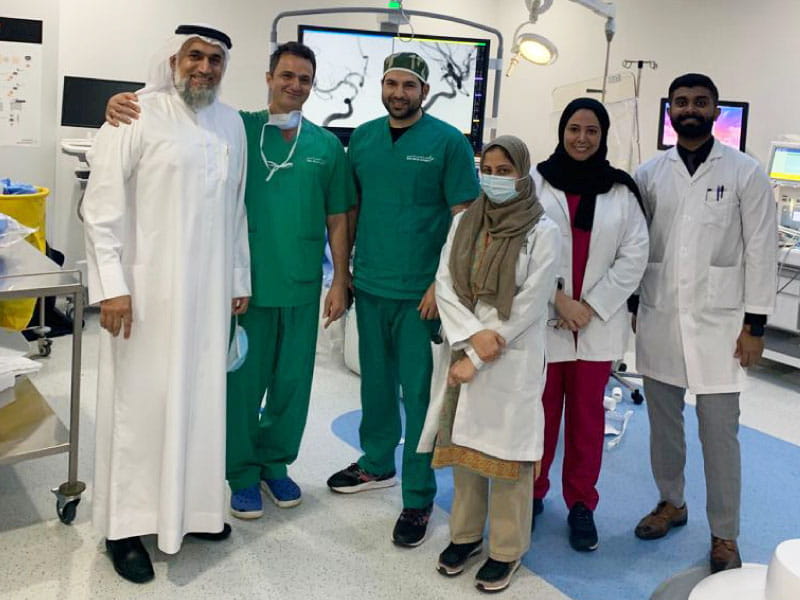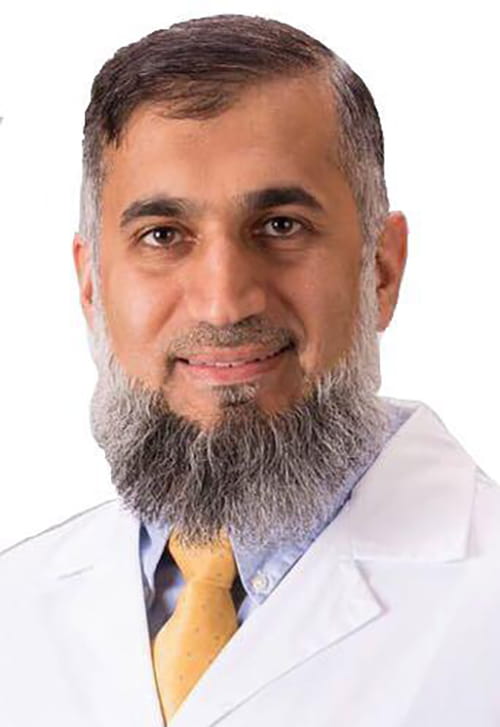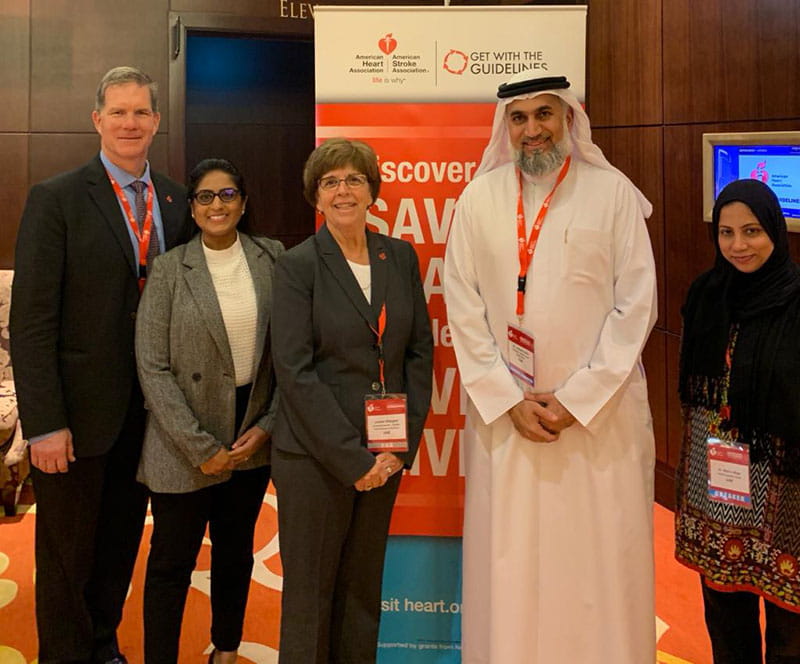Organization honored for strides against stroke in Middle East, North Africa

Thanks to cutting-edge research and new treatments, great strides have been made in the battle against stroke in much of the world, saving countless lives and livelihoods. There's been less progress in the Middle East and North Africa, where stroke occurs more frequently in young people and treatment options have been more limited.
"There's a huge deficit about stroke care in our region," said Dr. Suhail Al Rukn, a neurologist in the United Arab Emirates, noting that the large number of young people in the region experiencing stroke was "a red flag, because stroke is the No. 1 cause of adulthood disability and No. 2 or 3 worldwide for mortality."
Determined to close the gap, in 2016, Al Rukn and other senior stroke specialists from the region founded the Middle East and North Africa Stroke Organization (MENASO) in Dubai. MENASO has worked tirelessly to raise public awareness about stroke, educate health care providers about the most effective treatments and promote the need for dedicated stroke facilities and lifesaving treatments.
For outstanding contributions in achieving international goals to advance the AHA mission, MENASO will receive the 2022 Ron Haddock International Impact Award during the American Heart Association's annual National Volunteer Awards virtual ceremony on June 28.
A heartfelt mission
Increasing the number of dedicated comprehensive stroke care centers has been one of MENASO's top priorities. In 2015, there was only one such facility in the UAE and fewer than 10 in Egypt, which has a population of more than 100 million people. "Mortality decreases by at least 20% to 25% for patients admitted to a stroke center compared to those admitted to a general ward," Al Rukn said.
In an ambitious and ultimately successful attempt to address the problem, in 2019, MENASO partnered with the American Heart Association to distribute educational resources and define ideal systems of stroke care powered by the AHA's Get With The Guidelines quality improvement program. Together, the organizations developed a first-of-its-kind certification program, launched in July 2020.
"We hope this collaboration will enhance and improve the level of stroke care in the Middle East and North Africa," Al Rukn said, noting the value in learning best practices "from a big brother."
A direct result of those efforts, the first two accredited centers in Dubai came online in late 2021, and 20 additional centers are expected to open over the next year. "This is the first time for the AHA to do this type of certification outside the U.S.," Al Rukn said.

In addition, the information they have shared via monthly webinars and an annual conference that rotates between countries has persuaded Iran and Egypt to begin offering surgical clot-removing procedures and clot-busting drugs such as tPA through their national health care systems, saving lives and preventing permanent disability for many.
"It went from not being available to being covered 100% by these countries and their stroke centers," he said. "The number of patients who have received (such treatments) has increased five to six times."
The battle continues
While the number of stroke centers has increased in many Middle Eastern and North African cities, many small towns and villages are still lacking adequate care. And some countries in the region still don't offer effective treatments like tPA at no charge. "All stroke treatment is lifesaving, so these patients should receive it like any other lifesaving procedure," Al Rukn said.
To that end, MENASO is rolling out a series of short webinars for each country to promote the need for dedicated stroke centers and the wider adoption of accepted treatment practices. "That will spread our message and get our voice to every village and small town," he said.
In addition, the organization is encouraging governments to send more stroke patients in small towns and villages to the nearest dedicated stroke center, which can also serve as training facilities for health care professionals in those areas.
Al Rukn believes the work will ripple outward as awareness increases and the benefits become undeniable.
"When you see your neighbors are doing something good, you will learn from them," he said. "And then you will start to do the same thing."






